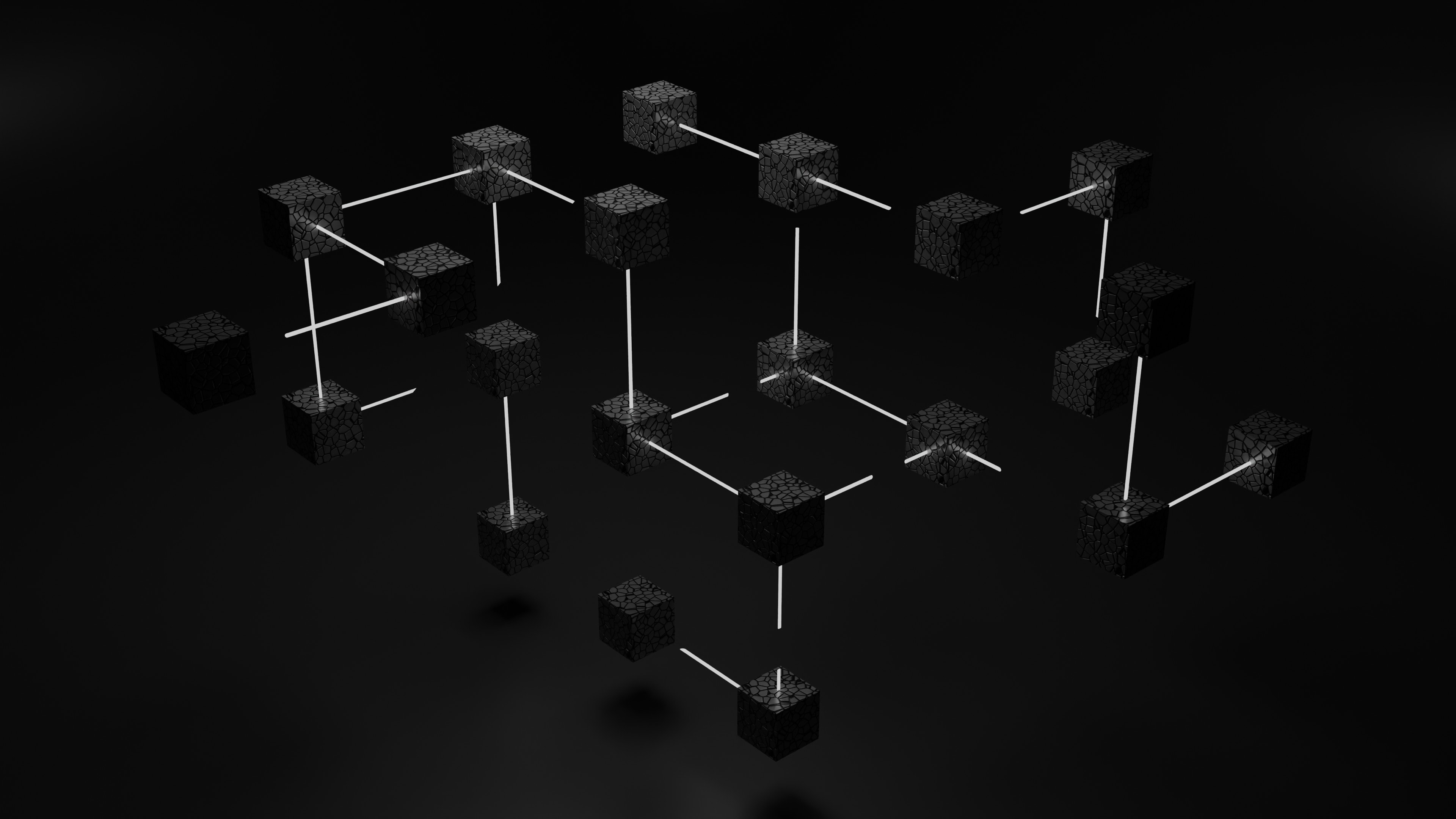What is blockchain?
Blockchain is a fixed, shared ledger that facilitates the process of tracking assets and recording transactions across a business network. Due to the immutable nature of blockchain, information stored in the blockchain becomes difficult, if not impossible, to hack or disrupt. These assets can be tangible or intangible and stored safely from outside influence.
The blockchain process begins with an individual or group requesting a transaction or transactions. After the request, the transaction is funneled into a P2P network and broadcast to nodes, or individual computers. The nodes are validated against an algorithm and, if approved, added to the public ledger. Once this has been done, the transaction is complete and immutable.
Benefits of using blockchain
Blockchain has a number of incredible benefits for its users, but a few key ones are:
- Security: One of the driving factors for blockchain adoption is security. Due to the immutable nature of the blockchain, it can be extremely difficult for individuals or groups to hack into it. This keeps assets secure, and it's why many organizations and financial institutions have begun utilizing blockchain.
- Immutability: Blockchain is immutable, which means it is permanent and unchanging. This means that data cannot be tampered with, nor can someone try to alter assets for personal gain. This makes assets on the blockchain authoritative and trustworthy.
- Transparency: Since blockchain is decentralized, any member in the network can verify recorded data. This makes the data more believable than a traditional database, as not all users can easily identify and verify key information.
Impacts of using blockchain
Blockchain has the potential to revolutionize buying and selling in digital spaces. Blockchain provides a secure and immutable means to conduct transactions online. As blockchain rises in popularity, it can fundamentally change how many organizations choose to conduct their business. Just a few of these major impacts could include:
- Financial Institutions: While every industry can eventually be impacted by blockchain, the finance industry may have the most dramatic changes. As digital transactions become more common, individuals and groups will continue to look towards online payment. This, along with the security the blockchain provides, may push institutions, if not the financial industry as a whole, towards blockchain.
- Database/Storage: Current means of storing information could become less common or even obsolete in the long run. An example of this would be databases. Unlike databases, blockchain is permanent, secure, and easily accessible by many. Without these assurances, databases and related technology may eventually be deemed too risky for businesses.
Basic elements of a blockchain
While blockchain use cases can greatly vary by organization and industry, there are important basic building blocks when it comes to blockchain, including:
- General ledger: At its core, blockchain is based around individuals or groups engaging in a series of secure transactions across a network. The general ledger keeps track of these transactions, storing them for users to access, authenticate, and verify as needed.
- Node: Nodes, also known as individual computers, are a key part of blockchain transactions. Each node receives transaction requests, which are needed for verification against the algorithm.
Blockchain best practices
In order to make blockchain work, users can follow these best practices:
- Governance: Blockchain only works if the right people are given access to the network. This means that organizations should be careful who they allow to enter the network. While blockchain boosts security outside the organization, it can be negatively impacted by individuals within the network.
- Permissions: An organization should decide upfront whether their data should or should not be seen by the general public. In many cases, the transparency of blockchain is a benefit, as it can aid in compliance and other regulatory needs. There is, however, the option of private blockchain. Private blockchain allows organizations to gain the benefits of blockchain while safely securing confidential information.
Types of blockchain software and services
Blockchain can be incorporated into a number of products and services across almost any industry. Key software specific to blockchain include:
- Asset tokenization software: Asset tokenization enables groups or individuals to create a digital proof of ownership for property or capital. These asset-based tokens can be utilized for transactions and asset management.
- Blockchain analysis software: Blockchain analysis software examines the information stored on distributed ledgers or the blockchain.
- Blockchain developers: Blockchain developers is a service offering that helps organizations develop custom applications for blockchain-based systems.
- Blockchain as a Service providers: Blockchain as a Service offers organizations a hosted platform for building applications. This differs from blockchain developers, as blockchain as a service offers a platform to users, as opposed to developing blockchain applications for them.
- Blockchain payment systems: Blockchain payment systems are utilized to process, facilitate, and verify transactions on the blockchain or distributed ledgers. Individuals, businesses, and financial institutions can all utilize blockchain payment systems.

Michael Pigott
Michael is a Market Research Analyst at G2 with a focus on technology research. Prior to G2, Michael worked at a B2B marketing services organization, where he assisted tech vendors with market assessments and competitive positioning. In his free time, Michael enjoys traveling, watching sports, and playing live shows as a drummer.




















